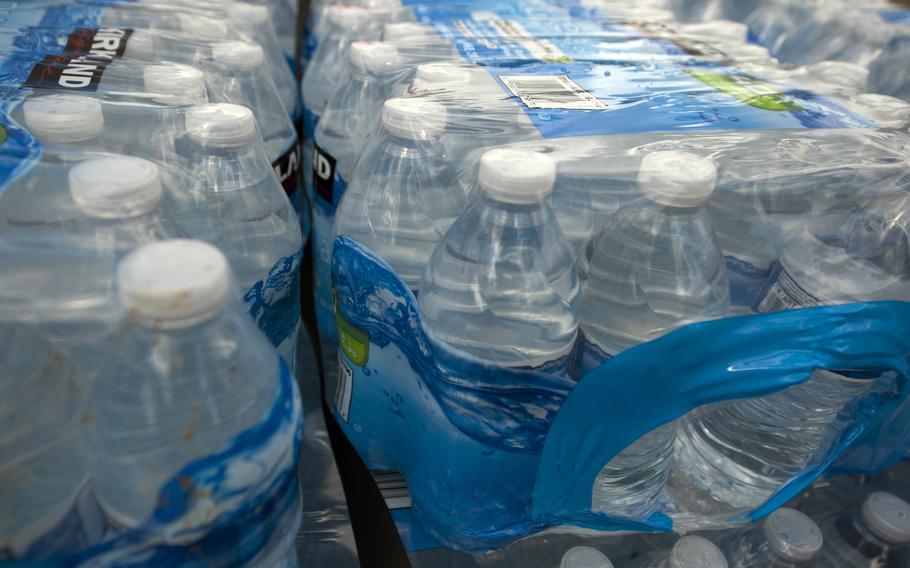
Military personnel funds are not authorized for the routine purchase of bottled water, according to section 34-131, paragraph 10.16 of the Air Force Manual. (Michelle Alvarez-Rea/U.S. Air Force)
Misawa Air Base in Japan erred by offering bottled water at the base dining facility, as it has since the COVID-19 pandemic, a spokeswoman said this week.
The base discovered recently that providing bottled water for airmen’s meals breached a recently updated Air Force regulation, Senior Airman Brieana Bolfing, spokeswoman for the 35th Fighter Wing, told Stars and Stripes by email Oct. 1.
Military personnel funds are not authorized for the routine purchase of bottled water, according to section 34-131, paragraph 10.16 of the Air Force Manual.
“This policy is in place to ensure that resources are used efficiently and that the military is able to meet its mission requirements,” Bolfing said.
She said an oversight resulted in the base continuing to purchase water for the dining facility after the U.S. military response to the pandemic had concluded.
The wing does not have information available on how much water was purchased or its total cost, according to an email from Bolfing on Monday.
The bottled-water error was discovered Sept. 6 by someone at the Air Force Services Center, she said. Among its responsibilities, the center at Joint Base San Antonio-Lackland ensures successful operation of essential food, fitness, child care, lodging and recreation activities for service members and their families, according to its website.
“We are committed to following all relevant regulations and policies to ensure that resources are used efficiently and effectively,” Bolfing said.
The regulation allows the purchase of bottled water with those funds if the public water supply is unsafe to drink, if the installation’s water source suddenly fails or a temporary facility has no drinking water available nearby.
Misawa’s drinking water does not meet those criteria, Bolfing said.
“There are no health concerns to drinking the water on Misawa [Air Base],” she said. “Our 35th Operational Medical Readiness Squadron Bioenvironmental Flight regularly tests and thoroughly evaluates the drinking water on Misawa Air Base.”
The drinking water for the base comes from three separate sources: wells, Lake Anenuma and the city of Misawa, according to Misawa Drinking Water Consumer Confidence Report 2023.
However, the base has had issues with its drinking water in the past.
A base water tower briefly exceeded safe levels of PFAS, a so-called “forever chemical,” according to a notice posted in September 2023 on the installation’s website.
The synthetic chemical and its components, PFOS and PFOA, were found in firefighting foam, also known as aqueous film forming foam, that is being discontinued on some U.S. military bases.
In April, water quality tests found that the Itsukawametsutsumi reservoir near the base had 14 times more PFAS than Japan’s national provisional target value.